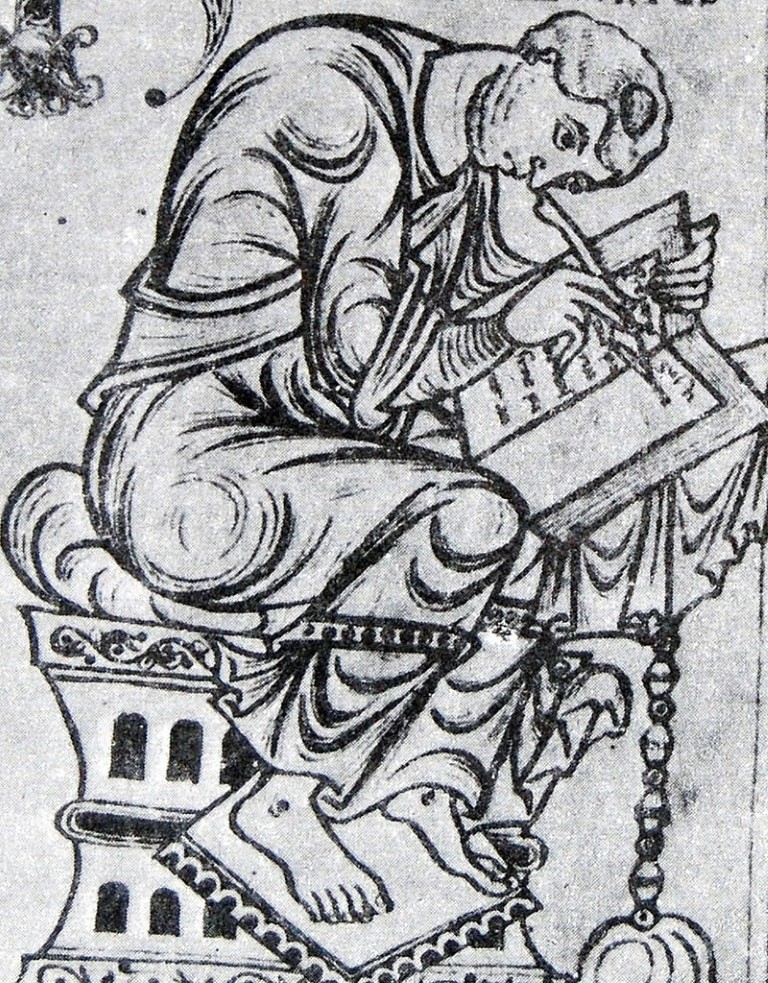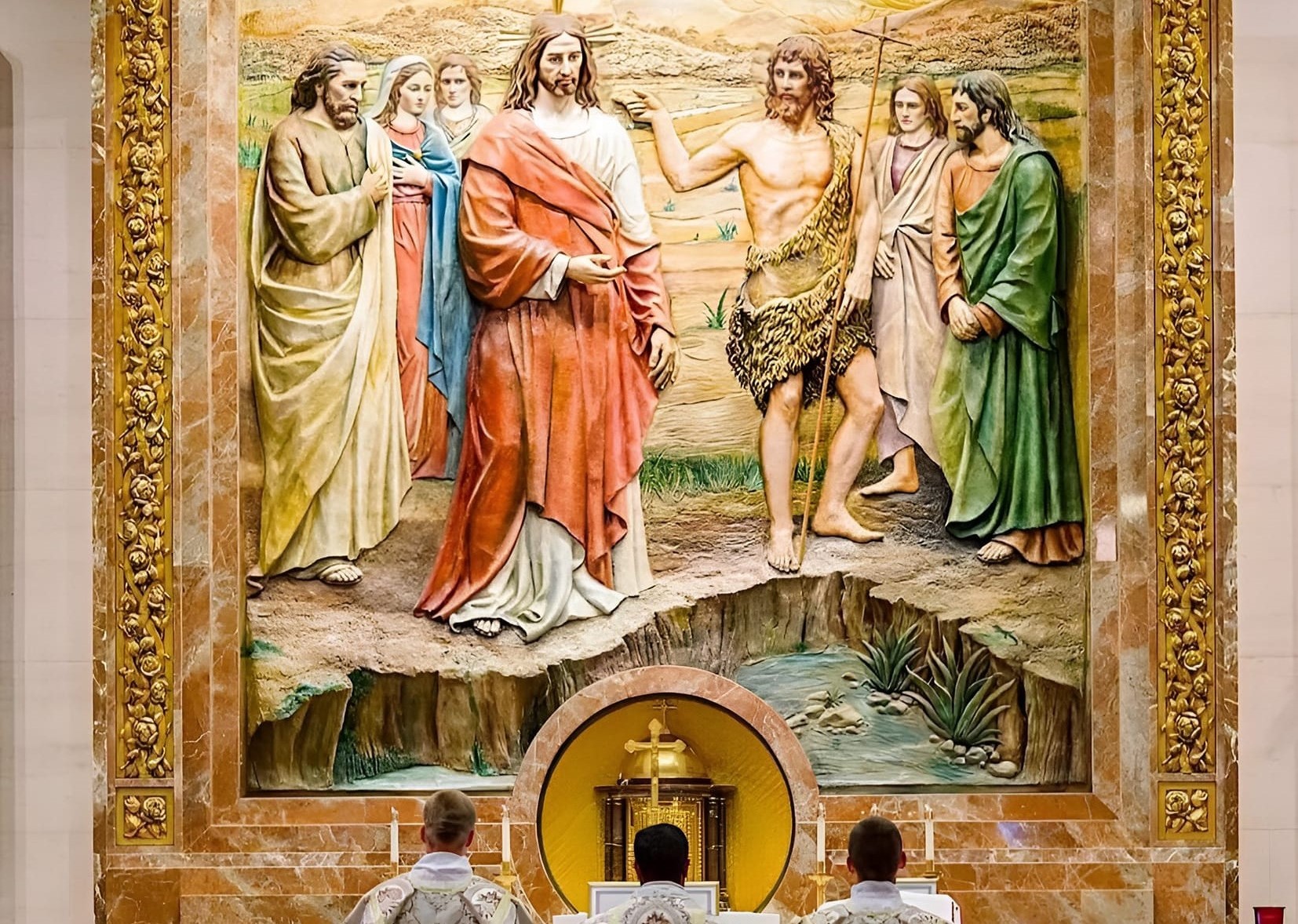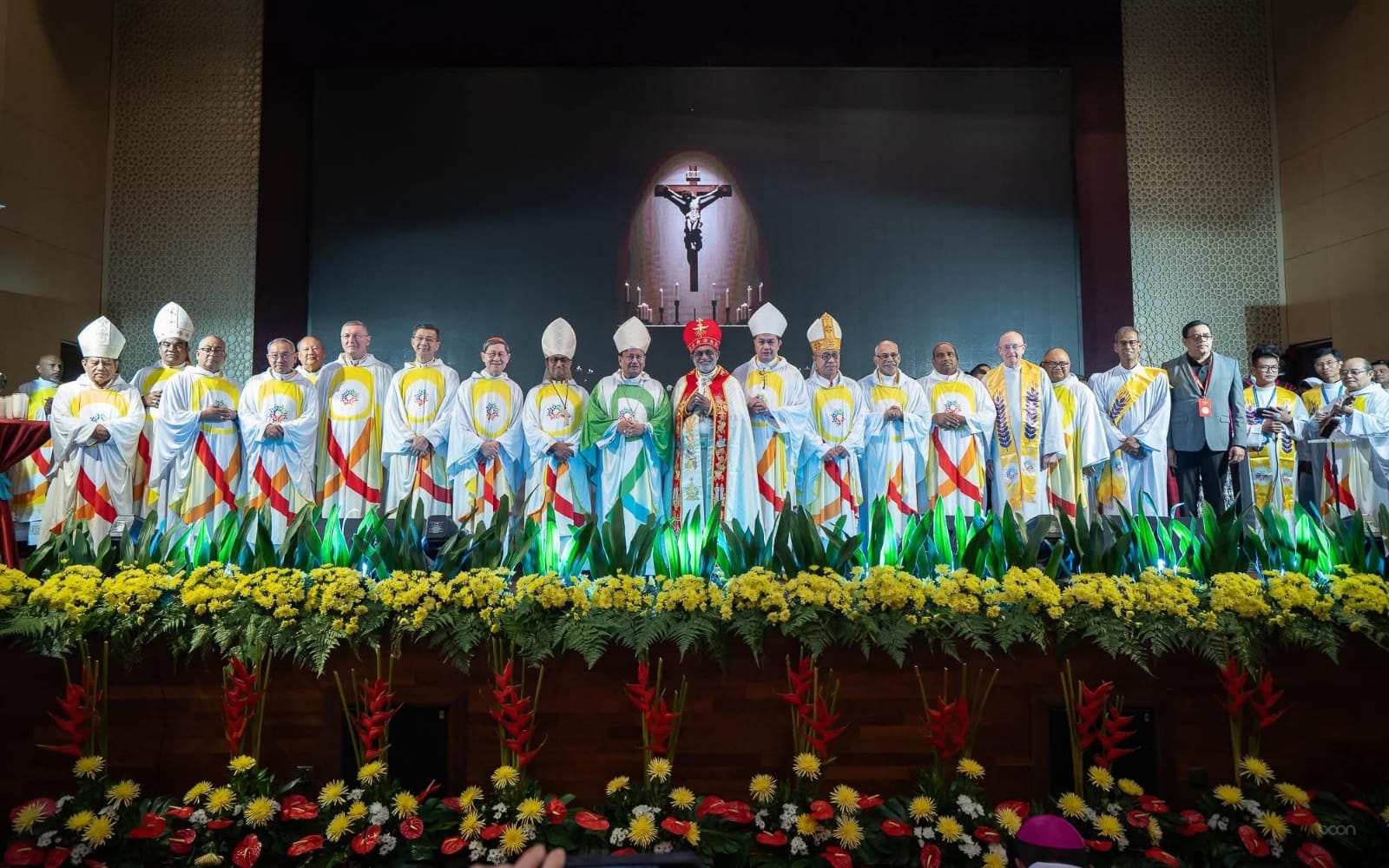Paulus Orosius, shown in a miniature from the Saint-Epure codex. (From Wikipedia)
– Anastasios
The Latin Spanish (or Portuguese) writer that goes under the name Orosius, or Paul Orosius (375-418), was a friend of Saint Augustine and of Saint Jerome. He was with the latter in Jerusalem and with him shared the fight against one of the most insidious heresies, Pelagianism. One of his most important works is Historiae adversus paganos, a theological view of history until his time.
Here is a selection from the masterwork of Orosius: “Sufficient evidence has now been gathered, I think, that these truths may be publicly submitted for the approval of my critics without my making use of any secret known only to a small number of the faithful. The One and true God, whom the Christian religion preaches, made the world and its creatures when He so willed, setting His creation in order through many separate acts, though in many of these acts His agency was not recognized. He established it for one purpose, when He was revealed by one event, and at one time He manifested and proved His power and patience in various ways. In this regard, indeed, I have for some time noticed that people who are narrow-minded and pessimistic resent the fact that great patience is associated with great power. If, indeed, He had the power, they say, to create the world, to establish peace therein, and to make known to it the worship and the knowledge of Himself, what need was there of so great a patience, or, as they themselves regard it, so pernicious a patience, that in the end the sins, disasters, and sufferings of mankind finally brought about conditions which could just as well have been produced in the beginning through the might of the God whom you are preaching? To these persons, indeed, I might truly answer that the human race from the beginning was so created and fashioned that, living according to the precepts of religion, in peace, and without toil, it might gain eternal life as a reward for its obedience. But having abused the goodness of the Creator, who had given it freedom, it turned His gift of liberty into stubborn disobedience and passed from the contempt of God into forgetfulness of God. In view of this, the patience of God is just in either case; for even if He is held in contempt He does not wholly destroy anyone to whom He wishes to be merciful, but by virtue of His power, as long as it is His will, He permits the man who despises Him to suffer trials. Hence it follows that it is always just for Him to guide such people in their ignorance, as He will in time, upon their repentance, mercifully restore to them the riches of their former grace.” Still we can see that one of the major issues for the Christian writers of that time (as it is indeed today) is the one of freedom.
Another passage that mentioned the beginning of Christianity in Rome: “During the seven hundred and ninety-fifth year of the City, Tiberius Claudius, the fourth in succession from Augustus, came to the throne. He occupied it for fourteen years. In the beginning of his reign, Peter, the apostle of the Lord Jesus Christ, came to Rome. There he taught by the true word the religion that brings salvation to all believers and attested it by mighty miracles. From that time on there began to be Christians in Rome. The City felt that this favor had been bestowed on her because of her faith. After the murder of Caligula, the Senate and the consuls passed many resolutions with a view to abolishing the empire, restoring the commonwealth to its former status, and wiping out completely the entire family of the Caesars. Soon after establishing his rule, Claudius exercised a clemency previously unknown in Rome. To prevent vengeance from venting its rage, if it should get a start, upon so many of the nobility, he consigned to oblivion the memory of those two days during which those unhappy measures and acts had been passed regarding the form of government, and decreed that all that had been done or said during that period should be pardoned and forever forgotten. This was that renowned and glorious Athenian amnesty, which the Senate, on the advice of Cicero, had tried to introduce at Rome after the death of Julius Caesar, but which at that time had come to naught because of the onslaughts made by Antony and Octavian in their efforts to avenge Caesar’s murder. Yet Claudius, without being asked by anyone, assented because of his humanity, though he had serious provocation to execute those who had conspired against him. Now at this time by the grace of God a great miracle occurred. Furius Camillus Scribonianus, the governor of Dalmatia, had been plotting a civil war and had persuaded many of the strongest legions to break their allegiance. But on the day appointed for their assembling at the side of the new emperor, they found it impossible either to adorn the eagles or to pull up and move the standards. This unique miracle so impressed the soldiers that they gave up their plan, abandoned Scribonianus, killed him four days later, and returned to their former allegiance. Now it is well known that nothing has ever brought more sorrow and destruction upon Rome than civil wars. Of a certainty God repressed this rising tyranny and threatening civil war on account of the coming of the apostle Peter and for the sake of the few Christians, who, like tender shoots springing up here and there, were just beginning to profess the holy faith. If anyone would deny this fact, let him produce a similar instance of the suppression of civil war in past ages.”
Christian historians should adopt a Christian perspective to find the deeper meaning in the development of things.


 Follow
Follow


